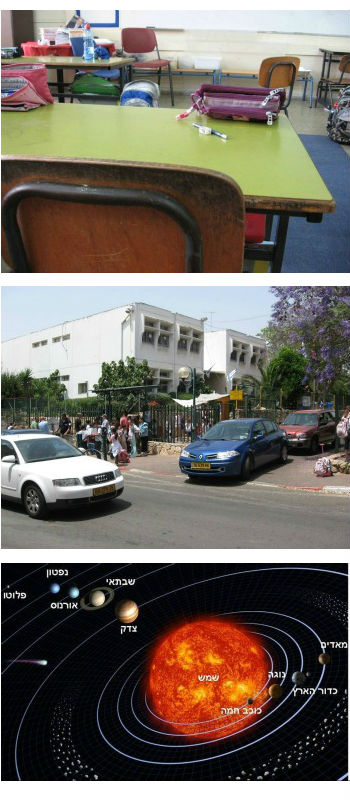Creative thinking may not just be a matter of good genes. It can be taught, according to a study at Tel Aviv University’s School of Psychological Sciences. Prof. Nira Liberman and undergraduates Maayan Blumenfeld, Boaz Hameiri and Orli Polack showed that kids can be “primed” to consider alternative realities and perspectives if they’re exposed to new ways of looking at the world around them.
As the researchers explain in the Journal of Experimental Child Psychology, this type of thinking could help children develop better interpersonal and problem-solving skills and perhaps even invent new theories and concepts leading to successful careers in the arts, sciences and business.
Spread the Word
• Email this article to friends or colleagues
• Share this article on Facebook or Twitter
• Write about and link to this article on your blog
• Local relevancy? Send this article to your local press
The key seems to be teaching “expansive” thought — encouraging children to think about distant objects and perspectives such as the galaxies in outer space, as opposed to objects and perspectives in their immediate surroundings. And it’s relatively simple to get kids thinking in this direction, says Liberman.
“I do a lot of work on the effects of psychological distance on creativity,” she tells ISRAEL21c. But her previous studies all focused on adults. “We did not know whether people learn to associate psychological distance with expansive thought over a period of years, or whether it is deeply rooted and learned before, perhaps even intrinsic.”
The new study, the world’s first to test theories of psychological distance and creativity involving children, used 55 subjects aged six to nine from Ra’anana and Ramat Hasharon. “The fact that these young children show that connection demonstrates to us it’s not an effect of years,” she says.
Thinking from the inside out
Liberman’s students showed half of the children a series of photographs that started with nearby objects and gradually progressed to more distant ones — from a close-up of the pencil sitting on their school desk progressing to a picture of the Milky Way galaxy. The other half was shown exactly the same photographs but in reverse order.
After looking at the photographs, both groups of children completed an abbreviated version of the Tel Aviv Creativity Test (TACT), in which they were given an object and asked to describe different possible uses for it. Points are given for the number of uses mentioned and the creativity of the use.
The children in the expansive mind-set group – those who viewed the series of photos from close to far away — scored significantly better on all of the creativity measures, coming up with a greater number of uses and more creative uses for the objects.
Liberman and her students believe that the increased creativity was a direct result of priming the children to think expansively rather than contractively. “Psychological distance can help to foster creativity because it encourages us to think abstractly,” explains Liberman.
This echoes her previous studies with adults, and it’s good news for those of us who don’t have an obvious creative streak. Apparently, exercises can train our minds to think more creatively, just as physical exercise trains our bodies to be stronger and more flexible.
“The flexibility of your mental operations is important because it underlies many human qualities, such as empathy, self-regulation, problem-solving and the ability to make new discoveries,” she adds.
She’s eager to continue this line of study, using even younger children. The three students who carried out the research have since moved on to graduate school. “I have to find people who wish to collaborate with me since I don’t usually study young children and it’s a different expertise,” she says. “I am waiting to see if there is interest.”


















